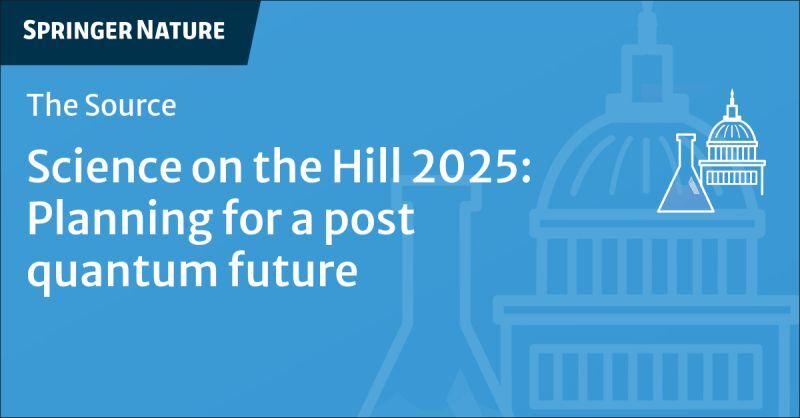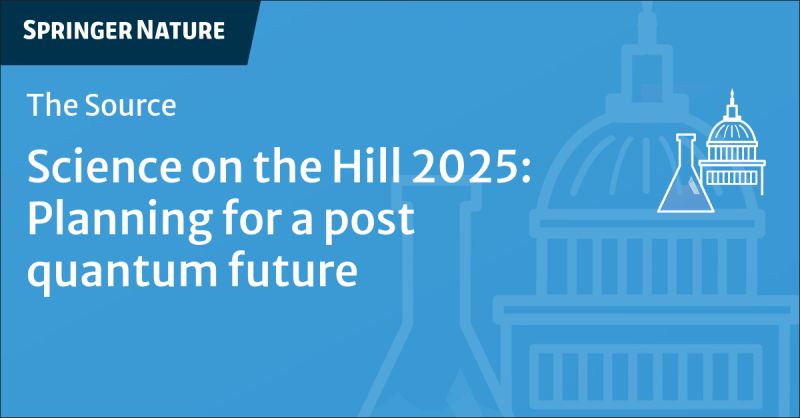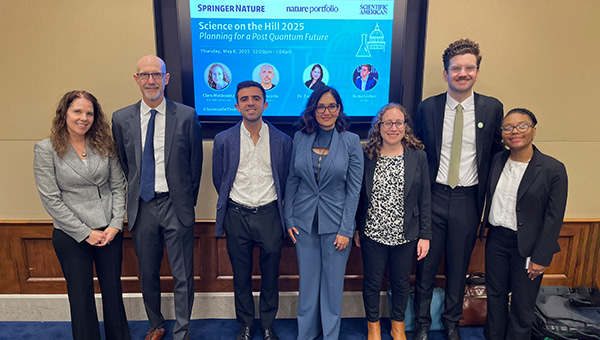Planning for a Post‑Quantum Future: Highlights from Science on the Hill 2025
Published in Physics and Mathematics

Quantum computing is coming, but are our policies ready?

That’s the central question tackled in this year’s Science on the Hill event, hosted by Springer Nature on Capitol Hill.
Now in its ninth year, the event brought together top researchers, U.S. policymakers, and industry experts to explore how we can prepare for a post-quantum future, where today’s encryption standards may no longer be secure. Explore the recap below:
Quantum computers could eventually break the public‑key cryptography that protects global communications and data—posing a real and growing threat. The panel discussion underscored the urgency of investing in:
-
Post-quantum cryptography
-
Quantum-ready workforce development
-
Resilient supply chains and standards implementation
.jpg)
Moderated by Clara Moskowitz from Scientific American, the 2025 panel featured:
-
Eric Rescorla, Consultant
-
Dr. Zaira Nazario, Director, Mathematics of Computation at IBM
-
Nima Leclerc, Quantum researcher Scientist at Mitre

The conversation explored policy options and highlighted the need for collaborative action across science, technology, and government. Explore more information through the link of 'Science on the Hill 2025'.
If you’re a researcher working in quantum technologies, cybersecurity, or policy, this is your call to engage. Science on the Hill is about connecting research with impact, ensuring that the voices of scientists are heard where decisions are made. Let us know what you think and how your work intersects with these challenges. Join the conversation in the comments below!
Follow the Topic
Ask the Editor – Space Physics, Quantum Physics, Atomic, Molecular and Chemical Physics
Got a question for the editor about Space Physics, Quantum Physics, Atomic, Molecular and Chemical Physics? Ask it here!
Continue reading announcement





Please sign in or register for FREE
If you are a registered user on Research Communities by Springer Nature, please sign in